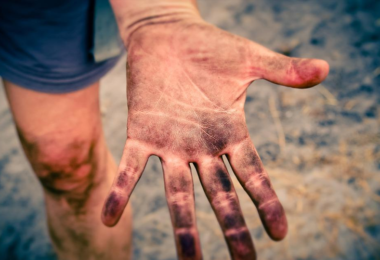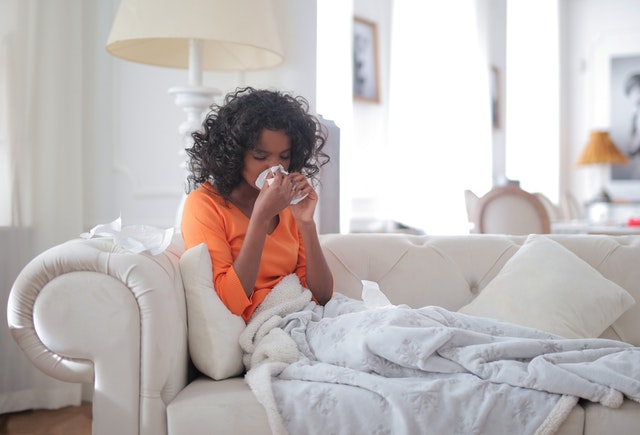Given the current situation, it is becoming more and more apparent that social distancing is not only a good idea but necessary to save lives, and because of that, most of us are stuck at home.
Since socializing with others is being actively discouraged, our lives are being fundamentally changed – from how we work to how we play.
However, we still need to take care of our physical and mental wellbeing.
This can be done by making healthy diet choices, remaining upbeat, and being physically active – even while staying indoors – for your health and everyone else’s health.
Here are some simple ways to stay healthy and active at home:
1. Find A Routine And Stick To It.
It is often not before some kind of disruption that you realize just how important a daily routine is when it comes to work and family.
Preparing breakfast, going to work, socializing with your friends, and so forth – these are all very enriching and ingrained into your life. While having to stay at home, for now, it’s crucial to create a new routine and find alternative ways to stay active.
Sure, it may be tempting to stay in your pajamas all day or do your work from bed if you’re able to, but this will wear on you and can have adverse effects on your mood and motivation.
On the flip side, having a routine is shown to have positive benefits on your mental health. For example, you can wake up at the same time every day, get some exercise, and then have a healthy and nutritious breakfast – this will create a positive start to your day.
2. Get Some Fresh Air.
Fresh air is vital to our health and wellbeing, especially now that we are undergoing so much stress.
If you aren’t sick and haven’t been traveling, there should be no problem with spending brief amounts of time outside – as long as you stay at least six feet from others. But imagine if everyone were going out, it would be impossible to maintain that distance – which would quickly defeat the purpose of social distancing.
Fortunately, you can get fresh air into your lungs every day without actually leaving the house. If you have a garden or a back yard, walk around for a bit or do some stretches. If you live in an apartment, sit on your balcony for a few minutes.
Alternatively, you can simply open a window and take a few deep breaths.
3. Keep The Mind Active.
As important as staying physically healthy is while stuck at home, it is equally important to keep your mind occupied.
The mind and body work in tandem – they support one another, and you are at your healthiest when both are maintained.
It’s tempting to curl up and “binge-watch” all of your favorite TV shows – and this sort of mindless entertainment has its place and time; but educational programs like documentaries or quiz shows can help keep your brain stay engaged while deprived of its usual stimulation, both social and intellectual.
Engaging in other activities – such as word or math problems and puzzles like sudoku – also help to keep your mind sharp and aid in positive thinking.
4. Get Things Done.
Its always important to feel a sense of accomplishment, and even more so during periods of extended downtime. This is true for both children and adults.
Focus on things that you usually can’t find the time for. Perhaps you can play games or make an art project with your children. Or spend more time with your spouse.
You can also use this time to tackle a household project that has been lingering, or simply clean up and do more cooking.
5. Fight Boredom.
When all the nightclubs, bars, concerts, and sporting events are canceled or closed, what’s left to do? Well, there are many other things to do!
That book or a backlog of magazines you’ve been meaning to read… Now is your chance.
The Netflix series that everyone at work was telling you to watch is another great way to uplift yourself from the endless news cycle. If you crave audio stimulation, music and podcasts await you – the perfect thing to do while performing your daily routine or getting some fresh air.
6. Stay In Touch.
Its critical in these times of isolation to not feel so alone. Socializing regularly with others helps stave off depression and clears your mind. That’s why it is so important to make and maintain remote connections with those you love.
The extra effort put forth will be appreciated by both your circle of friends and family. When possible, video-chat with loved ones for that extra personal touch. If you have family or friends who fall into a high-risk group – due to their age or some underlying medical condition – make sure to reach out to them regularly.
Just once or twice a day, even briefly, can work wonders for both you and them.
7. Adjust To Working From Home.
As health officials are urging everyone to stay inside, more people are working from home now – and many of them are adjusting to it for the first time.
Working remotely actually has many benefits. It eliminates daily commutes, boosts productivity, and leads to healthier lifestyles. For some people, however, it can result in feelings of isolation and longing for friends at work. If you’ve never worked from home before, encourage your employer to use instant messaging for your day to day communications or to have video-chat meetings weekly. It can help you feel less alone and more connected to your team.
Designating a quiet, relaxing space as your home office is much better than working on your laptop in front of the TV. It sets the right tone and helps you stay focused – away from distractions you may not be used to at work.
It’s also important to let others in your household know what is expected of you as you work from home, and that a quiet distraction-free workspace is needed.
8. Replace Lost Physical Contact.
Humans are social beings and need physical touch. And while we often don’t realize it, a smile and a hug go a long way. If you are at home with your family and everyone is healthy, it’s probably OK to have reasonable amounts of physical contact. Just remember to maintain handwashing routines and avoid touching your face.
Pets can also help us with our cravings for physical contact. Petting or hugging your devoted furry friend can do wonders. It may not be the same as human contact, but it is the next best thing. If physical contact with your family or a pet isn’t a possibility, do something to treat yourself and make yourself as comfortable as possible.
Snuggle up with a warm blanket, or hold a warm beverage so you can feel physically comforted.
9. Limit Your Exposure To The News.
If you’re watching or listening to the news nonstop, or even setting aside extra time in your new routine for it, this section is for you! Too much social media and news is never a good thing, let alone in the middle of a global health crisis.
Turning your notifications off or limiting news to once or twice a day is enough to keep up on the latest developments – without negatively affecting your mental health. Also, try to focus on local news and don’t get caught up in grandiose scenarios or what-ifs.
10. Take Mindfulness Breaks.
De-stressing is more imperative now than ever, and experts suggest taking mini mindfulness breaks throughout the day.
Taking even five minutes to turn your attention inward, focus on your breathing, and to block out the outside world can help you unwind immensely. If the idea of doing this practice seems strange or daunting, check online for videos and apps to help you get started.
11. Practice Random Acts Of Kindness.
Just because we are social distancing doesn’t mean that we can’t help others. You can donate blood, donate to a food bank, or make sure your elderly neighbors and family members have food and medical supplies. Thanks to the internet, you can even help others remotely.
Consider donating to organizations that provide support for people in need, or breaking up the monotony of your diet at home by supporting local restaurants that offer delivery. Social distancing is something entirely new to our society, but it is only temporary. We will get through this. People will return to work just as the toilet paper and hand sanitizer will return to the shelves.
Until then, we all need to work together and stay at home. We need to do our part for our communities and families.
So, how are you dealing with social distancing?
And what do you find the most challenging about it?







